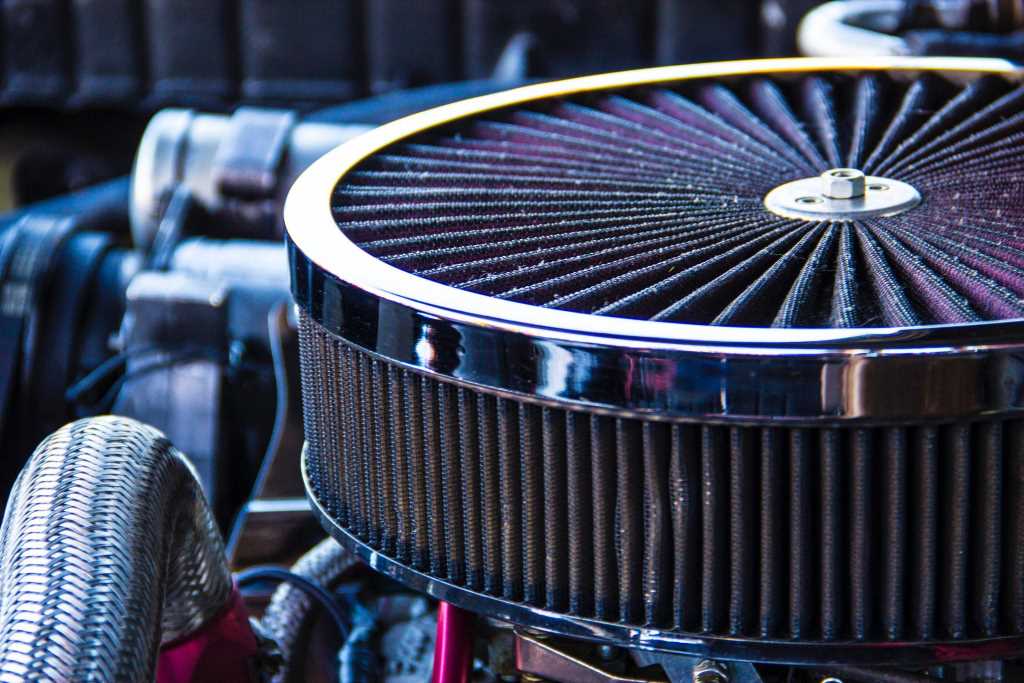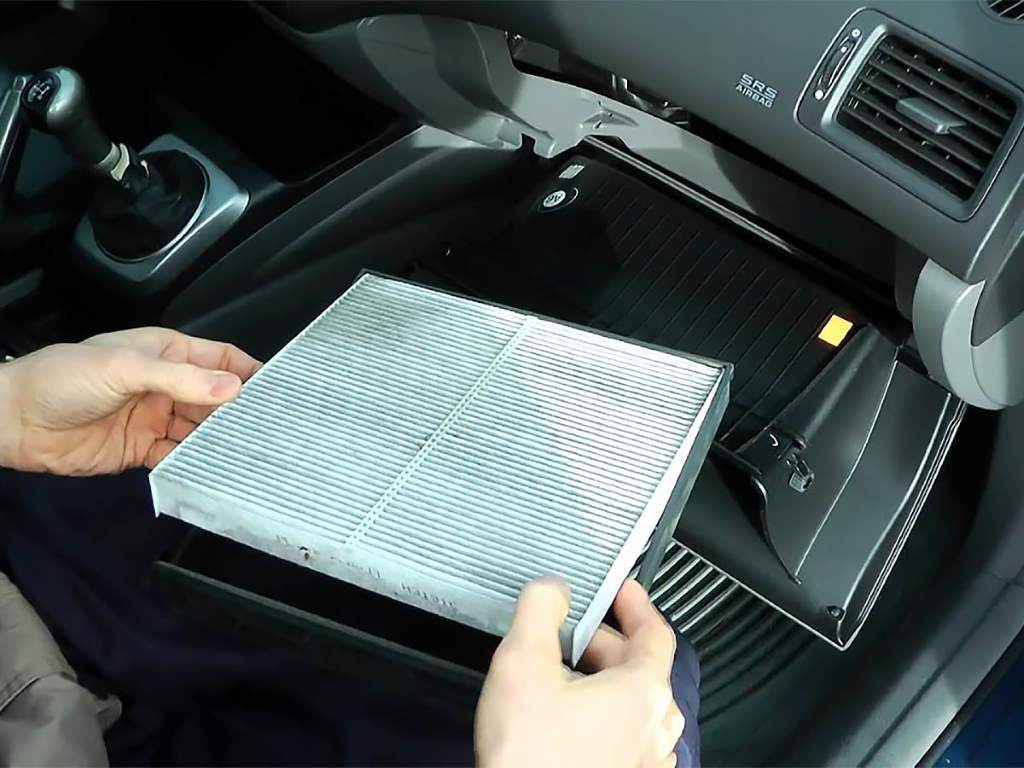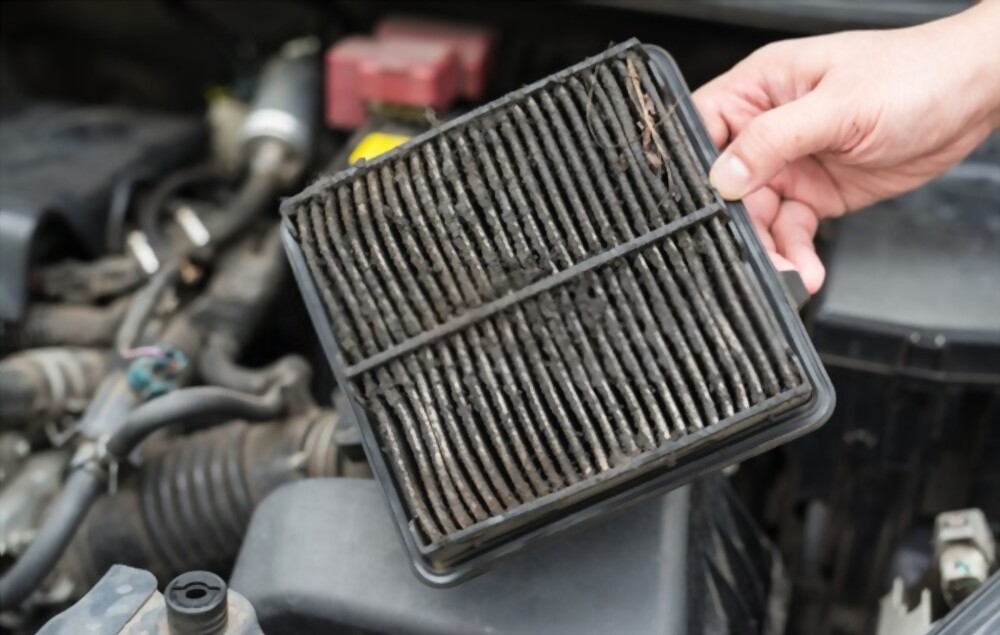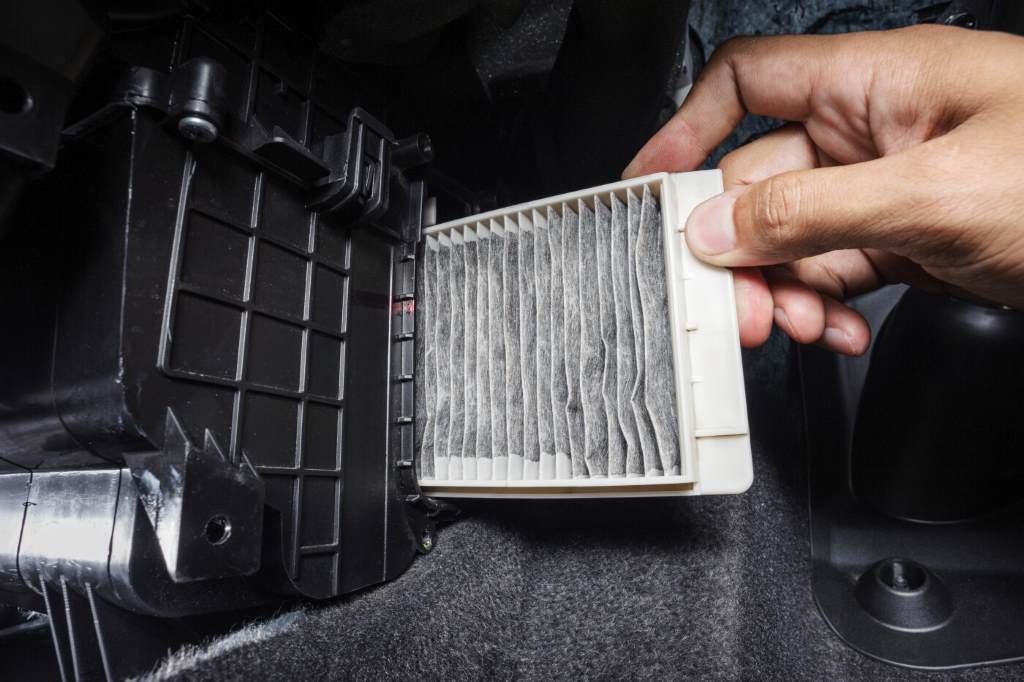In this comprehensive guide, we’ll explore the features, purposes, and maintenance tips for engine air filter vs cabin air filter.
When it comes to vehicle maintenance, air filters play a crucial role in keeping both the engine and the cabin environment clean and healthy. The engine air filter and cabin air filter are two distinct components responsible for filtering different types of air in your vehicle.
Understanding the differences between these filters, their functions, and the importance of regular maintenance is essential for keeping your car running smoothly and ensuring a comfortable driving experience.
Contents
Engine Air Filter vs Cabin Air Filter: Understanding Their Roles and Importance
Engine Air Filter
The engine air filter, also known as the intake air filter, is a vital component of the vehicle’s engine system. Its primary function is to filter the air before it enters the engine’s combustion chamber.
The engine requires a mixture of air and fuel to create the controlled explosions that power the vehicle. The engine air filter plays a critical role in maintaining this essential air-fuel mixture by filtering out harmful particles and debris from the incoming air.
Let’s delve into its features and significance:
Features of Engine Air Filter
- Construction: Engine air filters are typically made of pleated paper, foam, or cotton gauze material. These materials effectively trap and hold particles while allowing a steady flow of clean air to the engine.
- Filtration efficiency: Engine air filters have a high filtration efficiency, capable of capturing particles like dust, dirt, pollen, insects, and even tiny debris.
- Replaceable: Engine air filters are replaceable components and require periodic replacement as they become clogged with debris over time.
Importance of Engine Air Filter
- Engine Performance: A clean and efficient engine air filter ensures a consistent supply of clean air to the engine, optimizing combustion and enhancing engine performance.
- Fuel efficiency: Properly functioning engine air filters contribute to better fuel efficiency by allowing the engine to operate at its peak performance.
- Engine Lifespan: By filtering out harmful particles, the engine air filter helps prevent engine damage and extends the lifespan of the engine
Maintenance of Engine Air Filter
It’s crucial to inspect the engine air filter regularly, ideally during routine oil changes or as recommended by the vehicle manufacturer.
If the filter appears dirty or clogged, it should be promptly replaced with a new one to maintain engine performance and efficiency.

Cabin Air Filter
The cabin air filter, also referred to as the HVAC (Heating, Ventilation, and Air Conditioning) filter, is responsible for maintaining the air quality inside the vehicle’s passenger cabin.
Unlike the engine air filter, the cabin air filter focuses on filtering the air that enters the vehicle’s interior through the HVAC system. Let’s explore its features and importance:
Features of Cabin Air Filter
- Construction: Cabin air filters are typically made of paper or activated charcoal, which effectively traps and neutralizes various airborne particles, odors, and pollutants.
- Filtration efficiency: Cabin air filters are designed to filter out pollutants such as dust, pollen, smoke, mold spores, bacteria, and exhaust fumes.
- Location: The filters are usually located behind the glove compartment, under the dashboard, or within the HVAC system housing.
Importance of Cabin Air Filter
- Health benefits: A clean cabin air filter helps improve the air quality inside the vehicle, reducing the exposure to allergens and harmful particles, particularly beneficial for passengers with respiratory conditions.
- Passenger comfort: By removing unpleasant odors and pollutants, the cabin air filter contributes to a more pleasant and comfortable driving experience.
- HVAC system performance: A well-maintained cabin air filter ensures optimal performance of the HVAC system, providing efficient heating, cooling, and defogging.
Maintenance of Cabin Air Filter
It’s recommended to inspect and replace the cabin air filter at regular intervals, usually every 12,000 to 15,000 miles, or as specified by the vehicle manufacturer.
If the filter appears dirty or clogged, or if there is a noticeable decrease in airflow, it’s time to replace the cabin air filter.

Here is a comparison table between engine air filter vs cabin air filter:
| Aspect | Engine Air Filter | Cabin Air Filter |
| Function | Filters air entering the engine’s combustion chamber for combustion process | Filters air entering the vehicle’s passenger cabin for clean and healthy breathing |
| Construction | Made of pleated paper, foam, or cotton gauze for high filtration efficiency | Made of paper or activated charcoal to trap and neutralize various airborne particles and odors |
| Location | Located in the engine bay, usually near the intake manifold | Located behind the glove compartment or under the dashboard, within the HVAC system housing |
| Importance | Enhances engine performance, improves fuel efficiency, and protects the engine | Improves air quality inside the vehicle, enhances passenger comfort, and ensures HVAC system efficiency |
| Maintenance | Regular inspection and replacement necessary to prevent engine damage | Regular inspection and replacement recommended for clean cabin air and optimal HVAC performance |
| Replace interval | Typically every 15,000 to 30,000 miles, depending on driving conditions | Typically every 12,000 to 15,000 miles, or as per vehicle manufacturer’s recommendation |
| Effects of clogging | Reduced engine performance, decreased fuel efficiency, potential engine damage | Decreased air quality inside the cabin, reduced HVAC system efficiency, unpleasant odors |
| Health benefits | N/A | Improves breathing air quality, particularly beneficial for passengers with respiratory conditions |
| Effect on passengers | N/A | Creates a more comfortable and pleasant driving experience by removing odors and pollutants |
FAQs on Engine Air Filter vs Cabin Air Filter
1. What is the main difference between the engine air filter and the cabin air filter?
The main difference lies in their functions. The engine air filter filters the air entering the engine’s combustion chamber for efficient combustion, while the cabin air filter purifies the air entering the vehicle’s passenger cabin for a clean and healthy breathing environment.
2. Are the engine air filter and the cabin air filter the same in construction?
No, they are constructed differently. The engine air filter is typically made of pleated paper, foam, or cotton gauze for high filtration efficiency.
In contrast, the cabin air filter is made of paper or activated charcoal, designed to trap and neutralize various airborne particles and odors.
3. Where are the engine air filter and the cabin air filter located in the vehicle?
The engine air filter is located in the engine bay, usually near the intake manifold. On the other hand, the cabin air filter is usually located behind the glove compartment or under the dashboard, within the HVAC system housing.
4. How do the engine air filter and the cabin air filter affect vehicle performance?
The engine air filter affects engine performance by ensuring a consistent supply of clean air, leading to better combustion and improved fuel efficiency.
The cabin air filter contributes to passenger comfort by providing clean air inside the cabin and enhancing the efficiency of the HVAC system.
5. How often should I replace the engine air filter and the cabin air filter?
The replacement interval varies for each filter. Generally, the engine air filter should be replaced every 15,000 to 30,000 miles, depending on driving conditions.
The cabin air filter should be replaced every 12,000 to 15,000 miles or as recommended by the manufacturer.
6. What happens if I neglect to replace these filters on time?
Neglecting to replace the engine air filter can lead to reduced engine performance, decreased fuel efficiency, and potential engine damage due to a lack of clean air for combustion.
The dirty air filter can result in decreased air quality inside the cabin, reduced HVAC system efficiency, and the persistence of unpleasant odors.

7. Do these filters have health benefits?
While the engine air filter primarily affects vehicle performance, the cabin air filter provides health benefits by improving the air quality inside the vehicle’s passenger cabin.
It helps remove allergens, dust, pollen, and pollutants, making it particularly beneficial for passengers with respiratory conditions.
8. Can I replace these filters myself, or should I seek professional help?
Replacing these filters is relatively straightforward for those with some automotive knowledge. However, if you’re unsure or uncomfortable performing the task, it’s best to seek professional help to ensure proper installation and maintenance.
9. Can I use aftermarket filters for replacement, or should I stick to OEM filters?
While aftermarket filters may be available and more affordable, it’s generally recommended to use Original Equipment Manufacturer (OEM) filters. OEM filters are designed to meet the vehicle manufacturer’s specifications, ensuring the best fit and performance.
10. How can I tell if my engine air filter or cabin air filter needs replacement?
For the engine air filter, a visual inspection can indicate if it’s dirty or clogged. For the cabin air filter, reduced airflow, persistent odors, or decreased air quality inside the cabin are signs that it requires replacement.
Check out this video from Project Farm to see the best car air filter showdown for your next big inspection!
Conclusion
In conclusion, both the engine air filter vs cabin air filter are crucial components that contribute to the overall performance, efficiency, and comfort of your vehicle.
The engine air filter ensures that the engine receives clean air for optimal combustion, enhancing engine performance and longevity.
On the other hand, the cabin air filter ensures clean and fresh air inside the passenger cabin, providing a healthier and more enjoyable driving experience.
Regular maintenance and timely replacement of both filters are essential to keep your vehicle running smoothly and to create a clean and comfortable environment for you and your passengers.



